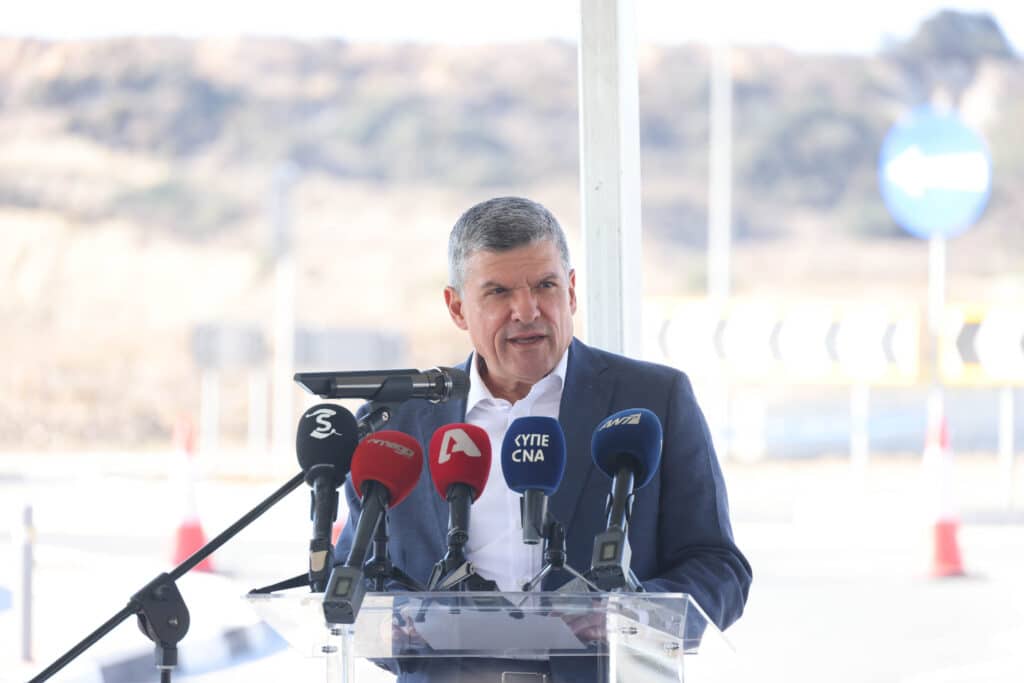American multinational oil and gas corporation ExxonMobil will next year begin drilling for natural gas under the sea off the coast of Cyprus, Energy Minister George Papanastasiou said on Friday.
Addressing the House finance committee during discussions regarding his ministry’s budget for the forthcoming year, he said the corporation would make two new drillings in the early part of next year.
This activity is related to the finding some years ago the ‘Glaucus’ natural gas deposit, which is located in block 10 of Cyprus’ Exclusive Economic Zone (EEZ), with Papanastasiou saying next year’s initial drilling activity will take place in “a neighbouring block”.
Depending on what is found in those two drillings, he said, the corporation will then “decide how [the natural gas] will be exploited,” and whether it will be done in tandem with gas extraction from the ‘Kronos’ reservoir in block six.
On the matter of the ‘Aphrodite’ deposit in block 12, which is under the management of fellow American corporation Chevron, he said the revised plan for the deposit submitted by Chevron in September is now being “discussed at a technocratic level”.
The new plan, he said, would see the gas extracted from the ‘Aphrodite’ deposit connected to a floating production unit (FPU) directly above it in Cypriot waters, which would then be connected to liquefaction infrastructure in Egypt, instead of creating new such infrastructure in Cyprus.
To this end, he said it is his ministry’s goal to “conclude these discussions by the end of January 2025 so that the next milestone in this project is not lost”.
He then spoke directly about the ‘Kronos’ reservoir, and said it is currently being “fast tracked” by Italian energy company Eni.
“We expect this month or next for there to be a development and production plan” for the deposit in question, he said, adding that the gas from the ‘Kronos’ reservoir will also be taken to Egypt for liquefaction and subsequent export.
He said the infrastructure used would be that which is currently in place for the liquefaction of natural gas extracted from Egypt’s ‘Zohr’ gas field, and that “based on forecasts, we will see the first Cypriot gas on the surface in the first half of 2027.”
Away from the issue of natural gas, he said Cyprus now has the capacity to produce a total of 950 megawatts of energy from renewable sources, with 1,500 megawatts of installed capacity from conventional production.
However, he said, only 20 per cent of Cyprus’ energy consumption is from renewable sources, given the lack of available storage systems.
He said that this figure “could be much higher” if the requisite storage infrastructure existed, and to this extent said he would next week put before cabinet a proposal to procure hybrid storage systems with a total capacity of 150 megawatts.
“A mix of conventional power generation with reduced pollutants and the use of renewable sources will give us a mix of electricity will seriously reduce electricity bills in households, and more importantly in businesses,” he said.
He requested that the committee acquiesce to a total budget of just shy of €175.5 million, saying he will use the money to “promote institutional reforms, implement support plans and policies, and invest in the creation of infrastructure”.
This, he said, will allow his ministry to “contribute in practice to the effort towards and inclusive society and the evolution of the Cypriot economy into a green and sustainable one which is both prosperous and competitive.”
“In an era of ongoing challenges created by the escalation of conflicts in the Middle East, the war in Ukraine, and the unprecedented energy crisis, the energy ministry is focused on the design and implementation of policies and interventions aimed at the optimal management of that which falls within our portfolio,” he said.







Click here to change your cookie preferences